

iGA Istanbul Airport and Chicago O’Hare International Airport have formalized a Sister Airport agreement, uniting two of the world’s most prominent aviation hubs in a partnership designed to foster collaboration and innovation across multiple facets of airport operations. The agreement was signed during a ceremony at O’Hare’s Terminal 5 on June 20, 2025, attended by executives from both airports and Türkiye’s Consul General in Chicago, Tahir Bora Atatanır.
The partnership aims to facilitate joint projects in airport management, operations, customer service, planning, and sustainability, reflecting the shared commitment to advancing global connectivity and excellence in passenger experience.
Selahattin Bilgen, CEO of iGA Istanbul Airport, highlighted the strategic importance of this alliance for expanding iGA’s presence in North America and strengthening its global network. He noted that the cooperation is expected to yield mutual benefits in both passenger and cargo transportation, leveraging the airports’ roles as major international gateways.
iGA Istanbul Airport, ranked the seventh busiest in the world by passenger numbers in 2024 and the ninth by aircraft movements, serves as Türkiye’s largest airport and a major hub for Turkish Airlines, offering nonstop service to over 330 destinations—including 14 in the United States. Similarly, O’Hare is recognized as the best-connected airport in the United States and a critical hub for Star Alliance carriers.
The agreement is particularly significant given the strong business and cultural ties between Chicago and Istanbul. The Chicago metropolitan area is home to approximately 5,000 Turkish nationals, with over 20 Turkish investors and 12 Turkish firms operating in the city, while eight Chicago-based companies maintain a presence in Türkiye. This partnership is expected to further enhance trade, tourism, and cultural exchange between the two cities.
Michael J. McMurray, Commissioner of the Chicago Department of Aviation, emphasized that the Sister Airport agreement will elevate bilateral relations between the United States and Türkiye and help maintain Chicago’s status as a global transportation hub. The partnership is also supported by World Business Chicago, whose President & CEO, Phil Clement, underscored the unique position of Istanbul as a city bridging Europe and Asia, and the value of deepening international ties for Chicago’s diverse economy and global reach.
The Sister Airport agreement establishes joint working groups focused on sharing best practices in airport management, customer service, planning, operations, and sustainable development. This is iGA Istanbul Airport’s first such partnership in the Americas, complementing its existing alliances with major airports in Asia and Europe, including Incheon, Beijing, Shanghai, and Copenhagen.
For the Chicago Department of Aviation, this marks its tenth Sister Airport agreement, further expanding its international network.
Both airports anticipate that the collaboration will position them to capitalize on growing passenger and cargo volumes, reinforcing their roles as vital nodes in the global aviation network and setting a foundation for ongoing innovation and connectivity

Allegations of extortion by customs officials at Cairo International Airport have intensified as travelers continue to report being pressured for cash payments under questionable circumstances. In a recent widely discussed incident, a young woman arriving from the United Arab Emirates was stopped for carrying a personal smartphone, a personal tablet, and a second Wi-Fi-only tablet.
Officials claimed she was in violation of import rules and demanded 3,500 Egyptian pounds (around $70) in cash, providing no receipt or documentation. She complied out of fear and intimidation.
Such incidents are not isolated. Multiple travelers have described similar experiences, often involving intimidation and demands for cash without any official paperwork, particularly targeting those unfamiliar with Egyptian customs procedures. Some have resorted to hiring local guides or “meet and greet” services to avoid such encounters, indicating that these practices are a well-known risk at Cairo airport.
The issue is part of a broader pattern of corruption within Egypt’s customs administration, which is considered a high-risk sector for bribery, extortion, and irregular payments. Businesses and individuals frequently report facing demands for unofficial payments during import and export procedures, with customs corruption cited as a significant barrier to trade and efficiency in Egypt.
This environment of corruption is reflected in Egypt’s ranking of 130 out of 180 countries on Transparency International’s Corruption Perceptions Index, placing it firmly in the “red zone” for widespread corruption.
Recent anti-corruption efforts by Egyptian authorities have led to the arrest of customs officials and airport employees involved in smuggling and bribery rings. In April 2025, the Administrative Control Authority arrested several Cairo airport customs officials and EgyptAir employees for their roles in a network smuggling illegal medications and accepting bribes from pharmaceutical companies.
Authorities seized EGP 6 million worth of illegal drugs and referred the detained officials to prosecution. These actions highlight ongoing attempts to address corruption, but also underscore how deeply entrenched such practices have become.
Transparency advocates have called for tighter oversight and the use of advanced technologies to monitor financial transactions and improve accountability. Despite more than 26 regulatory bodies tasked with combating corruption, the persistence of such incidents at the airport and beyond shows that enforcement remains inconsistent and often ineffective.
The cumulative effect of these scandals is damaging Egypt’s reputation as a tourist and business destination, with many travelers expressing reluctance to return after negative experiences at the airport. The situation is further complicated by reports of systematic bribery at other border crossings and within other government sectors, reinforcing the perception that corruption in Egypt is both widespread and deeply institutionalized

Istanbul’s airports have solidified their status as global aviation powerhouses, handling a combined total of nearly 50 million passengers in the first five months of 2025, marking a 5% year-on-year increase and adding over 2.5 million more travelers than during the same period in 2024. This robust performance is driven by both Istanbul Airport, which processed approximately 31.9 million passengers (6.4 million domestic and 25.5 million international), and Sabiha Gökçen International Airport, which accommodated about 18.05 million passengers (7.75 million domestic and nearly 10.3 million international).
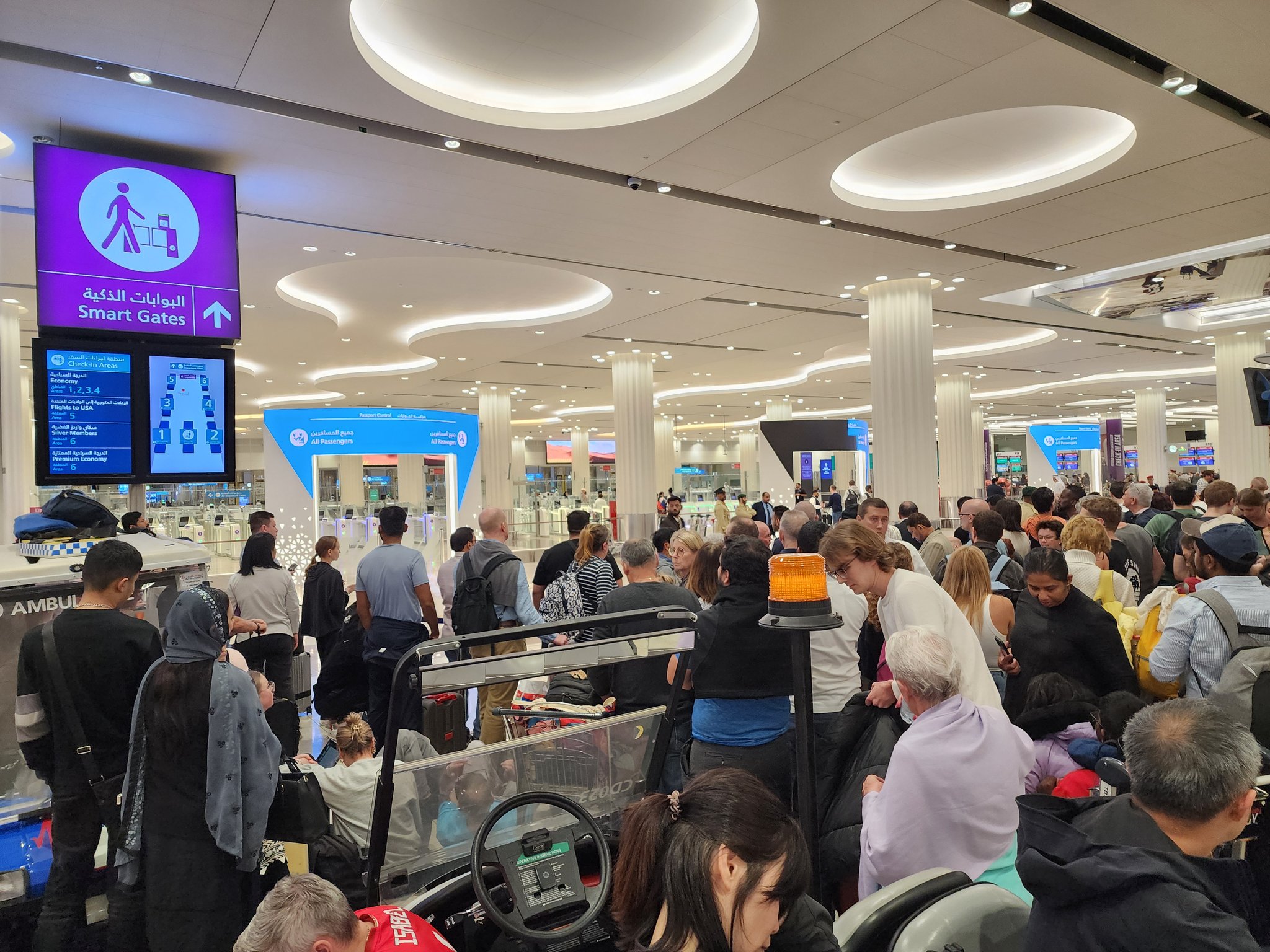
Sabiha Gökçen Airport, in particular, has demonstrated remarkable growth, recording an 11% year-on-year increase in total passengers and a 20% surge in international travelers for the January–May 2025 period. This makes it one of the fastest-growing airports in Europe, with its strong international performance outpacing many of its regional peers. In contrast, Istanbul Airport saw a slight decrease in domestic traffic (down 4%) but a notable 4% rise in international passengers compared to the previous year.
The surge in passenger numbers is mirrored by an uptick in flight activity. Istanbul Airport operated 212,978 flights in the first five months of 2025, up from 207,854 in the same period in 2024, while Sabiha Gökçen handled 105,278 flights. These figures highlight the airports’ advanced infrastructure and operational efficiency, which are capable of supporting high passenger volumes and complex logistics.
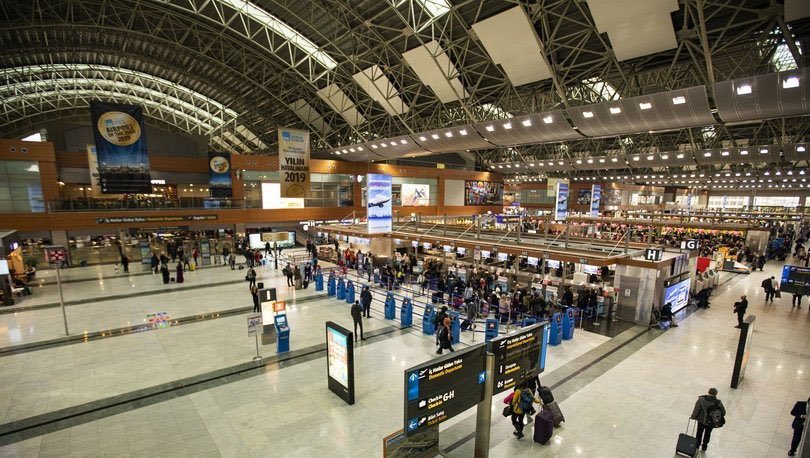
Ground transport connectivity further enhances the airports’ attractiveness. Sabiha Gökçen is well-served by the M4 metro line, which now connects directly to the airport, and additional rail projects are underway to improve links to the city’s wider metropolitan area and high-speed rail networks. Istanbul Airport, meanwhile, offers extensive road and public transport connections, making it a convenient hub for both local and international travelers.
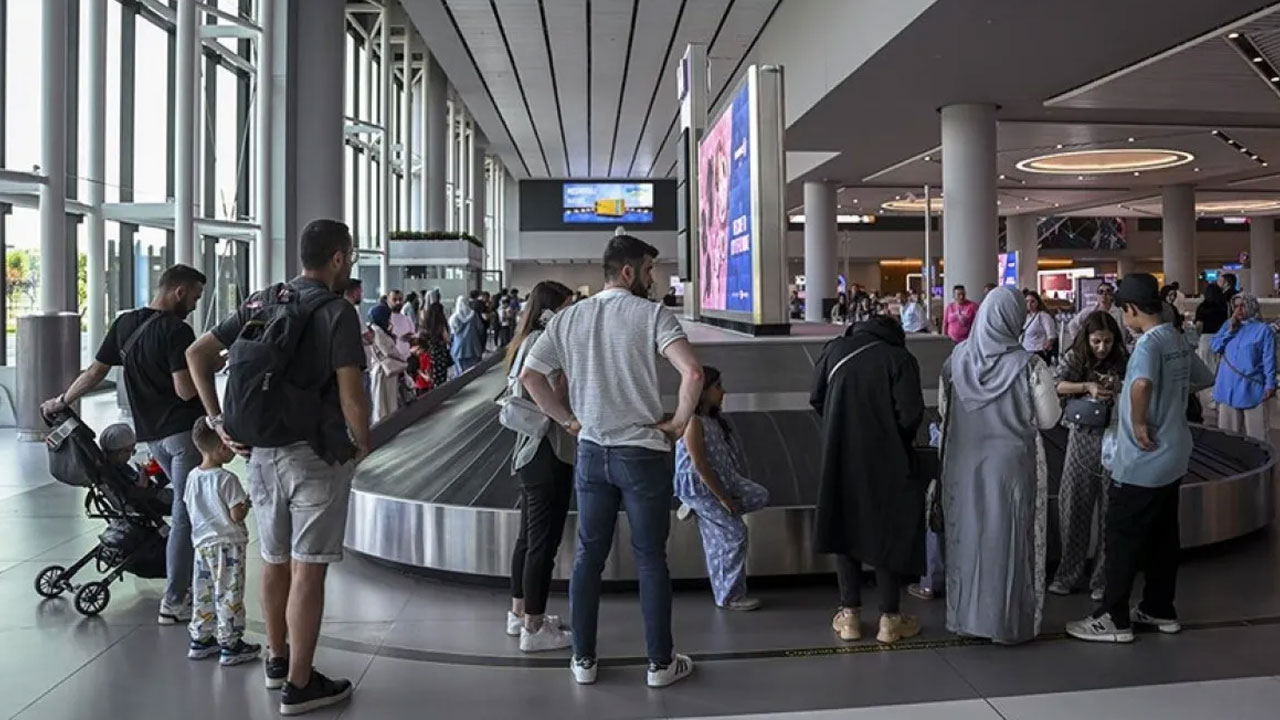
The sustained growth at Istanbul’s airports is also a reflection of Turkey’s expanding aviation sector, with national carriers and international airlines increasing their operations. The city’s strategic location as a bridge between Europe and Asia, combined with world-class facilities and efficient services, continues to attract a diverse mix of business, leisure, and transit passengers. This upward trajectory is expected to continue, reinforcing Istanbul’s role as a leading global aviation center.

Dubai International Airport (DXB) is entering one of its busiest summer periods ever, with more than 3.4 million passengers expected to travel through its terminals from June 27 to July 9, 2025. Daily passenger numbers are projected to exceed 265,000, with July 5 anticipated as the peak day for both departures and transfer traffic. This surge coincides with the start of school holidays and a public holiday for Islamic New Year, contributing to the exceptionally high demand for outbound travel.

To manage this influx, Dubai Airports and its partners have implemented a comprehensive summer readiness plan. This includes real-time monitoring of passenger flows, predictive deployment of staff and resources, and enhanced guest support services. Special attention is being given to accessibility, with services such as Smart Gates for children over 12, Sunflower Lanyard assistance for hidden disabilities, and a dedicated Assisted Travel Lounge in Terminal 2 for People of Determination.
Travelers are strongly urged to arrive at the airport no earlier than three hours before their flight to avoid overcrowding and to use online check-in, self-service kiosks, and bag drop facilities, particularly at Terminal 3. For additional convenience, services like DUBZ allow passengers to check in and drop off their luggage from home or hotel, streamlining the airport experience.
Passengers are also encouraged to use DXB Express Maps, accessible via QR code, for real-time navigation and updates on flight and gate information.
Despite the airport’s robust preparations, regional tensions have led to some flight delays and cancellations, making it essential for travelers to regularly check their flight status and stay in close contact with their airlines. The airport continues to coordinate closely with aviation authorities and airline partners to prioritize safety and minimize disruptions.
.jpg)
While waiting, guests can enjoy a wide range of restaurants, duty-free shopping, and lounges throughout the airport, helping to make the travel experience as pleasant as possible during this exceptionally busy period. In 2024, DXB welcomed a record 92.3 million guests, underscoring its status as one of the world’s busiest and most efficiently managed airports.

Ben Gurion International Airport is moving forward with a phased expansion of its operations after weeks of severe disruption caused by the conflict with Iran. Following the announcement of a ceasefire, the Israel Airports Authority (IAA) revealed that takeoffs and landings at the airport will increase from the current two per hour to eight, with the ultimate goal of reaching 20 per hour as conditions stabilize.
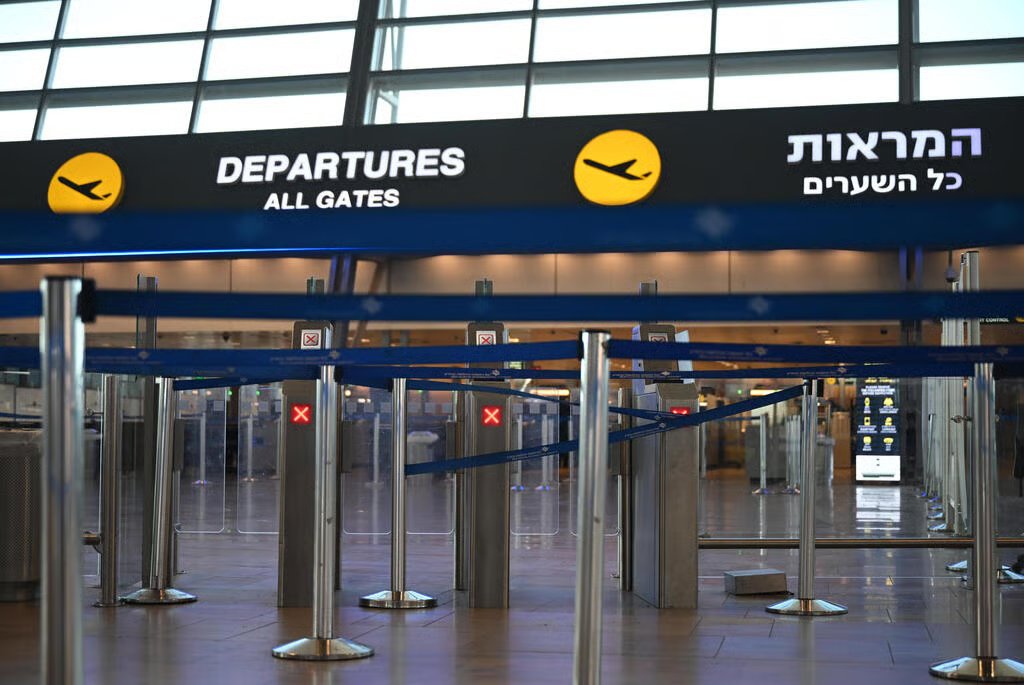
A detailed flight schedule for the coming month is expected to be published soon, providing travelers and airlines with greater clarity about the resumption of services.
The airport’s reopening is a significant milestone for Israel’s connectivity, as airspace was abruptly closed on June 13 during military operations, stranding an estimated 40,000 foreign tourists and leaving tens of thousands of Israelis abroad.
Since June 18, the government has authorized evacuation flights, and Israeli carriers such as El Al, Israir, and Arkia have begun operating limited international flights to major destinations including Athens, Bangkok, London, Los Angeles, New York, Paris, and Rome. Strict restrictions remain in place for now, with a cap of 50 passengers per flight and a maximum of 1,500 people allowed inside Terminal 3 at any given time.
Foreign airlines are also seeking to resume flights to Israel. UAE’s flyDubai, Cyprus-based TUS Airways, and Greece’s Blue Bird have all requested permission to restart services, but are awaiting final approvals. Industry experts anticipate that smaller regional carriers will likely return first, followed by larger international airlines if the ceasefire holds.
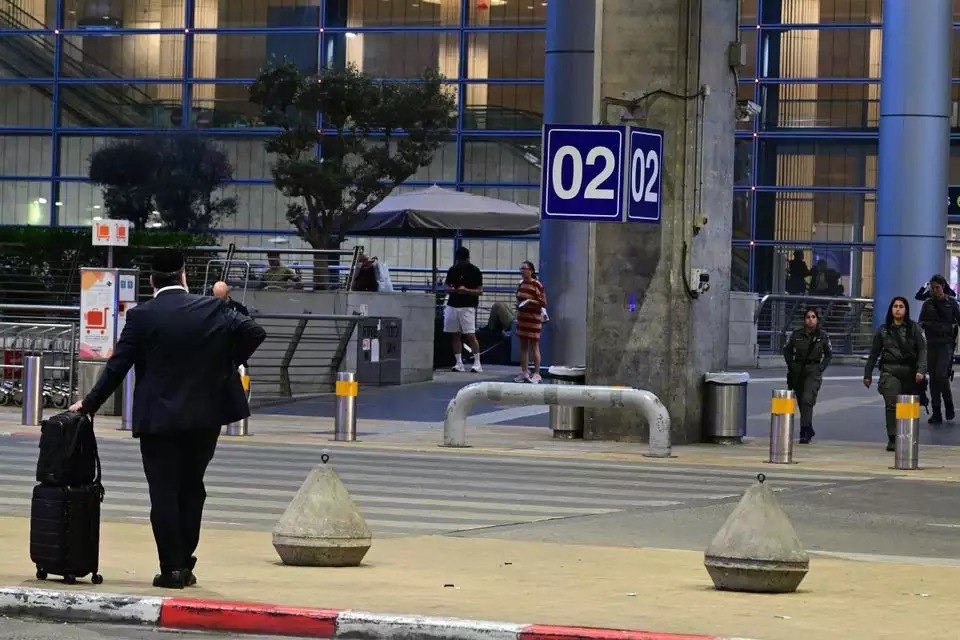
The IAA, in coordination with the Civil Aviation Authority and the Ministry of Defense, is conducting ongoing assessments to ensure a safe and orderly transition back to normalcy. The Home Front Command has lifted all restrictions, allowing not only increased flight frequencies but also the reopening of duty-free shops and the removal of limits on the number of passengers and accompanying persons at the airport.
Travelers are advised to monitor airline updates closely, as schedules may continue to change in the coming days.
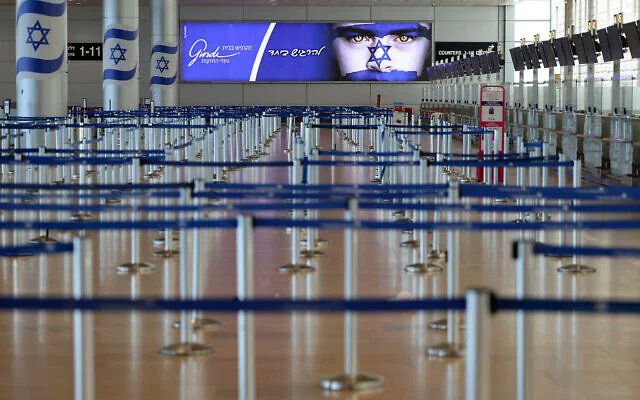
Since the onset of the conflict, over 95,000 Israelis have returned to the country by land, sea, and air, but many remain stranded abroad as airlines work to ramp up operations. The gradual restoration of flights at Ben Gurion Airport marks a critical step toward reestablishing Israel’s international travel links and alleviating the backlog of travelers awaiting return